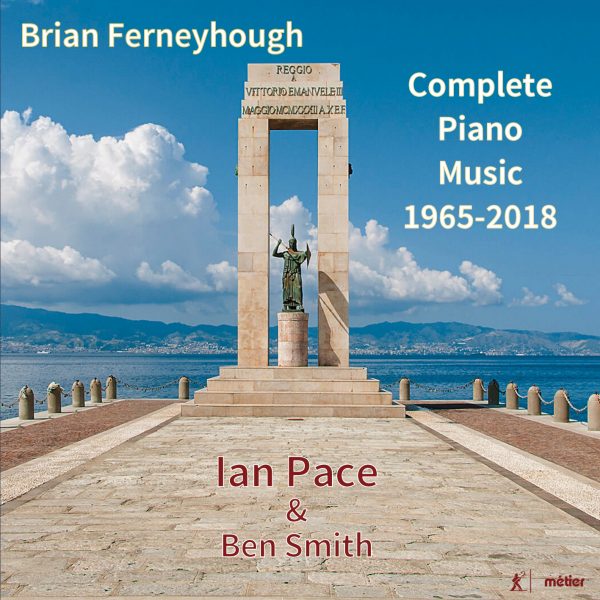International Piano
British modernist composers Brian Ferneyhough and Michael Finnissy have been brought together in a movement that critics labelled New Complexity – presumably in contrast to Old Complexity (Schoenberg, Webern, Boulez and Stockhausen) and New Simplicity (minimalism). Ferneyhough (born 1943) has produced a relatively modest output for solo piano that fills two CDs, but which embraces scores of incredible complexity in his hallmark style.
British pianist Ian Pace is a leading exponent of this challenging music. A musical thinker as well as a virtuoso of the highest order, he began his Ferneyhough project for Métier in 2005, just before the label was acquired by Divine Art. Pace subsequently extended the recording to include more recent compositions and the Sonata for Two Pianos, which he performs here with Ben Smith.
The music was composed between 1965 and 2018. The earliest pieces – Invention (1965), Epigrams (1966), Three Pieces for Piano (1966-67) and Sonata for Two Pianos (1966) – are rooted in Old Complexity. The album really comes alive with an electrifying interpretation of Lemma-Icon-Epigram (1981) where Pace is looser and more Romantic than Nicolas Hodges’ rather classical treatment on Neos – though both are outstanding interpretations. Opus Contra Naturam (2000) for speaking pianist was developed from a scene in Ferneyhough’s Walter Benjamin-inspired opera Shadowtime.
@divineartrecordingsgroup
A First Inversion Company
Registered Office:
176-178 Pontefract Road, Cudworth, Barnsley S72 8BE
+44 1226 596703
Fort Worth, TX 76110
+1.682.233.4978












